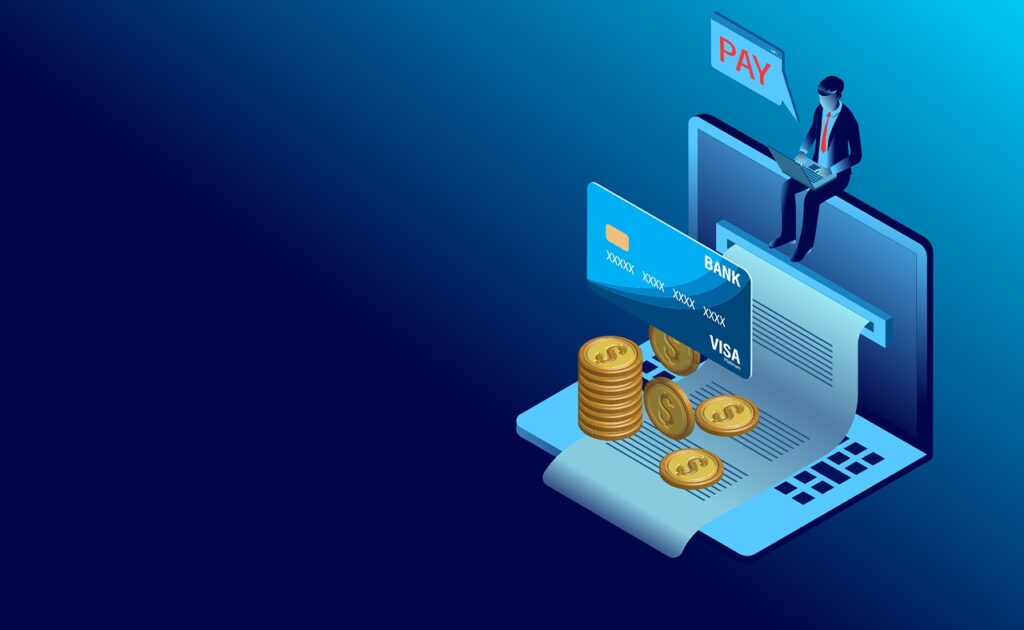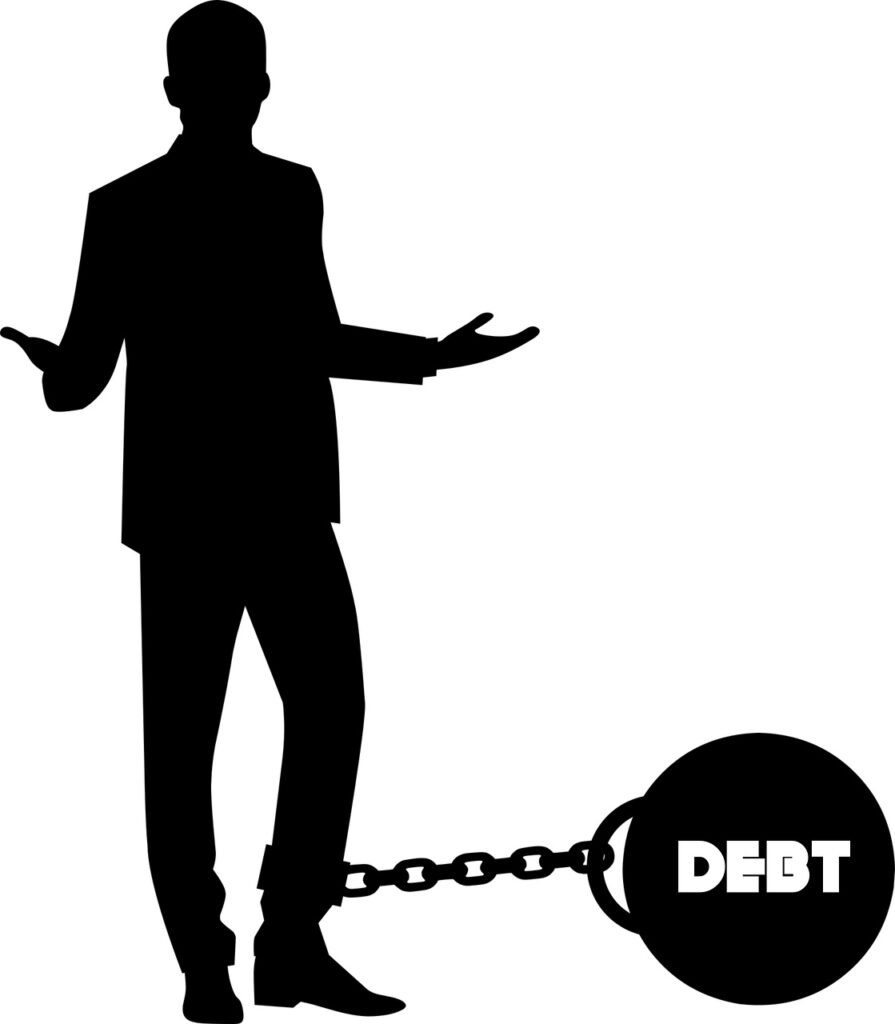Debt Hazards

Loans have become an integral part of modern life, and they often seem like the solution to our financial challenges. However, it’s crucial to recognize that they can lead us down a slippery slope – one that resembles a murky swamp. At first, taking out a loan appears to pave the way for convenience and opportunities. But as we step further into the world of debt, we often find ourselves sinking deeper with each passing day.
Debt Escalation, Fancy Illusion and Poor Life

Take a moment to chat with individuals burdened by various loans, whether they are personal, mortgage, business, or student loans. Ask them about their journey to debt freedom and their mindset when struggling to make monthly payments on time. Do they find contentment in the endless cycle of earning and paying bills, or do they feel trapped in a relentless loop?
Many may argue that few can afford a $500,000 home in cash, and they’d be correct. Whether through employment or entrepreneurship, most of us eventually turn to banks for mortgage loans – a reasonable choice. However, in a world where mortgage loans are becoming commonplace, do we truly need to further entangle ourselves in debt? Do we genuinely require that shiny, high-tech $50,000 car, when a reliable used vehicle could serve the same purpose? Some even finance opulent home decor and furniture. But do we really need these things, and where is this cycle taking us?
In Robert T. Kiyosaki’s renowned book ‘Rich Dad, Poor Dad,‘ there’s a famous quote that perfectly encapsulates financial wisdom: ‘Rich people acquire assets, while poor and middle-class individuals acquire liabilities that they mistakenly believe are assets.‘
Adulthood in Debts

The house and car loans usually enter the picture when we’re well into our careers or businesses. But if you’re a young adult fresh out of school, contemplating a student loan, pause and reflect. Is a life shackled by student loan debt, mortgage loans, and credit card bills what you truly aspire to?
This debate is multifaceted. If you’re pursuing a bachelor’s or master’s degree, it’s an essential part of the journey. If financial constraints lead you to seek government assistance, that’s reasonable. However, it’s only justifiable when you are certain about your chosen path. Consider the medical field, for instance, where specialists like cardiologists, psychologists, dermatologists, and paediatricians are sought after. If you’re committed to your field and confident in your academic abilities, the risk of taking a loan might be worth it.
But if you’re unsure and merely pursuing a degree for the promise of a high-paying job, take a step back. Studying on a loan of $30,000 to $40,000 is no small matter. Your optimistic mind may say you can repay it within five years of landing a job. However, the reality may differ depending on your job, personal circumstances, and lifestyle. A bachelor’s degree typically spans three years. Imagine your course costs $25,000, which you’ve borrowed with the intention of repaying it once you secure a job. When you finally graduate, your student loan balance won’t remain at $25,000; it will grow annually due to indexation charges.
Debt Web

The concern isn’t merely repaying the debt, which you’ll do in instalments based on your income. The concern is what if you grow disenchanted with your job in the future? What if the 9-to-5 routine becomes stifling? In such a scenario, you might feel ensnared. On one hand, you’ll worry about servicing your student loan, keeping you tethered to your job. On the other, the thought of the arduous journey to secure this job – the years of academic toil and debt accumulation – may deter you from pursuing new opportunities.
Life unfolds in unpredictable ways. People often reassess their career choices after several years of service. Some dream of starting their own businesses, requiring innovative thinking and modest investments. The debt cycle can be stifling, distracting us from creative pursuits and obscuring new opportunities.
As life advances, responsibilities multiply. Managing family, children, a home, career, and health is demanding enough. Adding student loans, car loans, and credit card debt to this mix often exacerbates the situation rather than improving it.
Debt Stress

In many cases, people who are under debt experience severe stress, anxiety, and even depression. When you’re trapped in a job you dislike but can’t leave due to mounting debts and a mountain of bills, it’s easy to feel like you’re caught in an endless loop. This situation can be like a dark room, where people begin to lose their cognitive abilities. The pressure of debt can be almost unbearable.
Debts can have a profound impact on one’s relationships. It’s natural to fight over one thing while constantly worrying about another. Financial distress can strain and unhappiness in relationships indeed. It’s being said by Michael Mihalik, ‘Debt can turn a free, happy person into a bitter human being.’
Education vs. Qualification

Education is a vital aspect of personal development. However, one doesn’t necessarily need a loan to access education. Loans primarily come into play when we seek formal qualifications. For instance, in the case of medical specialists, where the investment is justified. Nevertheless, having a qualification without a heavy loan burden is undoubtedly preferable. If possible, consider working part-time to pay your course fees while studying, ensuring you don’t emerge from your academic journey burdened by debt.
Education has always been Debt Free

Education is readily available in today’s internet era. Even in the past, when the internet’s popularity was limited, people acquired knowledge through various means, such as manual books, newspapers, and magazines. To gain knowledge, all one needs is a thirst for it. I recall a famous dialogue from the award-winning Hindi movie “3 Idiots,” based on the novel “Five Point Someone” by renowned author Chetan Bhagat, and directed by Rajkumar Hirani: “To get an education, one needs a uniform, not money.” The message here is clear – you don’t require a lot of money to learn if you don’t confine yourself to the pursuit of certificates of qualification.
This fact becomes evident when we observe people engaged in small businesses, ranging from grocery shops and bakeries to beauticians and hairdressers. Few of them took loans to study these fields.
It’s evident that for education, one doesn’t need a loan. In that case, it wouldn’t be wrong to label an education loan as a qualification loan indeed.
Gratitude to Information Age

In today’s world, we should be grateful for the open sharing of lifelong struggles and success experiences through various social platforms. There is a wealth of wisdom and guidance available now more than ever.
If you listen to the very renowned entrepreneur and inspirational speaker, Sandeep Maheshwari, you will notice that he consistently emphasizes the importance of ‘NOT TAKING LOANS‘ in his talks. Additionally, he has recently initiated the Business Mastery Series, where he discusses various low-cost business ideas that people can pursue.
Jay Shetty, a well-known British podcaster, author, and life coach, frequently delves into the topic of living with purpose. Recently, he explored the concept of a ‘problem vs. possibility mindset.‘ The problem mindset sees only one path to reach a desired goal, while the possibility mindset recognizes multiple avenues to reach the same destination. His talks are incredibly powerful, prompting deep introspection and helping you rewire your thoughts.
Dr. Vikas Divyakirti, the founder and managing director of ‘Drishti IAS,’ is highly regarded among Union Public Service Commission (UPSC) exam aspirants. He is a fount of wisdom, and his talks often inspire individuals to introspect and understand their fundamental nature, guiding them in making choices. When you listen to him, his wisdom, pace, and language create a meditative experience that leaves you feeling more centered.
Say Bye..Bye..to Debts












Pingback: Every human being is born CREATIVE (Creativity is in our blood) - Reach out to your inner self.